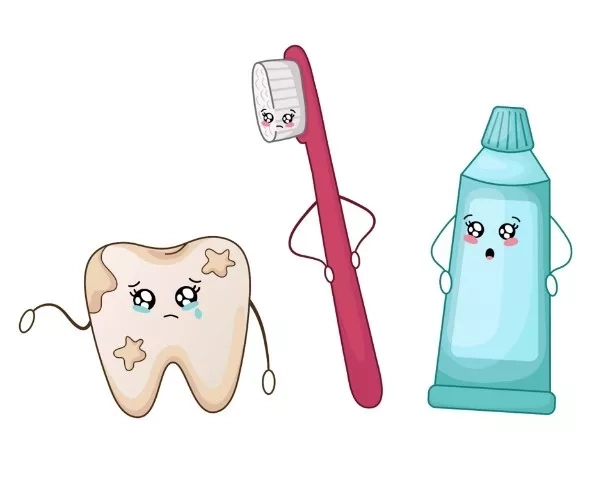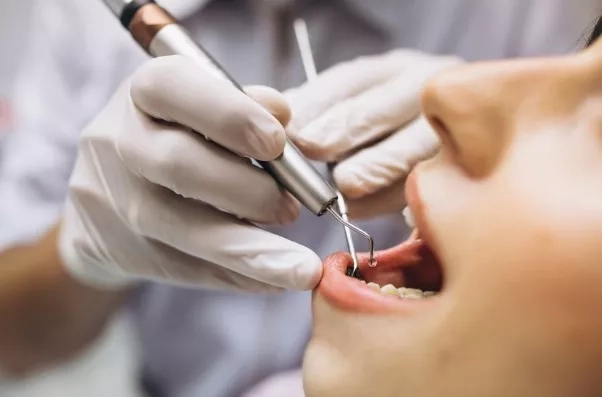Pregnancy and dental health
By Dr. Tan Su Wee
While it is an old wives' tale that calcium is lost from a mother's teeth and "one tooth is lost with every pregnancy", changes experienced in your oral health during pregnancy may dramatically affect the way your dentition looks, feels, and functions. This is chiefly due to a surge in hormones; particularly an increase in oestrogen and progesterone, which can exaggerate the way gum tissues react to plaque.

How does a build-up of plaque affect me?
Poor oral hygiene results in a steady accumulation of plaque. The bacterium it brings about irritates our gum tissues, causing gum disease. In pregnancy, the effects of gingivitis are more pronounced. “Pregnancy gingivitis” causes red, swollen, tender gums that are more likely to bleed. Also, gum disease moves faster from gingivitis to periodontitis, which is an advanced form of gum disease that causes damage to our teeth and their supporting structures that can't be fixed.
Pregnancy Gingivitis might surface as early as the second month of pregnancy and can lead to significant discomfort and pain. Potential gum problems should be combatted with meticulous cleaning habits.
Pregnant women are also at risk for developing pregnancy epulis, an inflammatory, non-cancerous fleshy growth that develops when swollen gums become irritated. They do not usually require treatment and will shrink on their own after delivery. However, if it interferes with chewing, brushing, or other oral hygiene procedures, your dentist may decide to remove it.
How can I prevent these problems?
Brush with fluoride toothpaste twice daily and floss thoroughly. If you experience morning sickness and bouts of frequent vomiting, rinse your mouth with fluoride mouthwash followed by a generous application of re-mineralising tooth mousse afterwards to prevent erosion of your tooth structure. These products are available at your dentist. Regular checks (each trimester) and cleanings at the dentist during the 2nd trimester will also help control plaque, prevent gingivitis, and detect dental problems early. Good nutrition—particularly plenty of vitamin C and B12—will help keep the oral cavity healthy and strong.
When should I see my dentist?
If you are planning to become pregnant, schedule a routine check with your dentist. He/she will assess your oral condition and treat all dental problems prior to pregnancy.
If you are pregnant, make sure to let your dentist know prior to any dental visit. It is best to have a routine visual exam every trimester to check for any problems and to clean during the second trimester of your pregnancy. This is because the first three months of pregnancy are thought to be of the greatest importance in your child's development. Stress associated with dental visits may increase the incidence of prenatal complications during the last trimester.
Inform your dentist of all the names and dosages of drugs you are taking, including medications and prenatal vitamins prescribed by your doctor. Any specific medical advice your doctor has given you should also be communicated. Your dentist may need to alter your dental treatment plan based on this information. Certain drugs, such as tetracycline, can affect the development of your child's teeth and should not be given during pregnancy.
Do not skip routine dental checks because you are pregnant. Because of the way hormones change during pregnancy, it's important to get regular periodontal (gum) exams to stop gum problems from getting worse quickly. Pay particular attention to any changes in your gums during pregnancy. If tenderness, bleeding, or gum swelling occurs at any time during your pregnancy, seek help from your dentist as soon as possible.

Are there any dental procedures I should avoid?
The best time for routine dental treatment is the fourth through sixth months. Dental emergencies that cause a lot of pain can be treated at any point during a woman's pregnancy. However, your obstetrician should be consulted if you need anaesthesia or if you are given medicine. Treatments that aren't necessary, like getting your teeth whitened or getting other cosmetic work done, should wait until after the baby is born. It is best to avoid cosmetic dental work while pregnant to keep the developing baby from being exposed to any risks, no matter how small.
Routine x-rays (radiographs) taken at yearly intervals to screen for cavities should be postponed until after birth. In certain dental emergencies, such as extractions, radiographs might be necessary for diagnosis and treatment of the pregnant patient. According to the American College of Radiology, no single diagnostic x-ray has a radiation dose significant enough to cause adverse effects on a developing embryo or foetus.
Some tips to make your dental visits comfortable
- Maintain healthy circulation by keeping your legs uncrossed while you sit in the dental chair
- Take a pillow to help keep you and the baby more comfortable
- Bring headphones and some of your favourite music

Can oral health have an effect on pregnancy?
There is increasing evidence supporting a link between gum disease and premature, underweight births. Pregnant women who have gum disease may be more likely to have a baby that is born too early and too small. More research is needed to confirm how dental diseases affect pregnancy outcomes.
Eating right for your teeth and baby
Although cravings for sugary snacks and treats are common during pregnancy, they should be avoided as much as possible. Keep in mind that the more frequently you snack, the greater the chances of developing tooth decay. Also, many studies have shown that the bacteria that cause cavities are passed from the mother to the child. Your baby's first teeth begin to develop about three months into pregnancy. Therefore, a healthy and balanced diet will ensure your baby has strong, healthy teeth. Well-balanced meals comprising dairy products such as cheese and yogurt are a good source of the essential minerals needed for a baby's developing teeth, gums, and bones.
After you have had your baby
If you had gum problems during your pregnancy, see your dentist as soon as possible after giving birth to have your entire mouth examined and your periodontal health evaluated.
Putting more focus on dental health and good oral hygiene habits during pregnancy will help both mother and child have healthy smiles for the rest of their lives.
Recent Blog Posts
- 01 Aug 2025
- 02 Jun 2025
- 28 Mar 2025
- 10 Nov 2023
- 19 Oct 2022
